#turkish literature
Text

Nazim Hikmet, A Spring Piece Left in the Middle
2K notes
·
View notes
Text
After spending two hours with a book, and finding it more pleasurable than two years of real life, I’d remember again that life had no meaning, and sink back into despair.
Sabahattin Ali, from Madonna in a Fur Coat, 1943
#sabahattin ali#madonna in a fur coat#turkish literature#existential despair#reading#quotes#dark acadamia aesthetic#classic literature
104 notes
·
View notes
Text
Bir damla inciydi kirpiklerinde,
Aşkın ıstırapla dolu rüyası
Bir başka güzellik var kederinde
Bir başka âlem ki ruhunun yası,
Sessiz incileşir kirpiklerinde.

Ahmed Hamdi Tanpınar - Leylâ
#my post#postlarım#quotes#alıntı#alıntılar#spilled ink#tumblr türkiye#edebiyat#spilled thoughts#leyla#ahmet hamdi tanpınar#aşk şiiri#aşk şiirleri#şiirimsi#şiirler#şiirsokakta#şiirheryerde#tumblr şiir#şiir#turkish literature#turkish poetry#turkish poets
11 notes
·
View notes
Text
***
Taxonomy of Hair Colors:
Catherine is brunette, Isabella is blonde. Bihter is brunette, Nihal is blonde. Hanka is brunette, Jagna is blonde. Both Hatice and Nigar and Fumiko and Yoko are brunettes.
***
I think I will go with “Bihter - Nihal” because it is the only one completely without closure.
Catherine and Isabella are from the English classic novel Wuthering Heights. While Catherine is rather vicious to Isabella in revealing her crush to Heathcliff, Isabella still cries after Catherine’s death and even kisses her portrait alongside her brother’s before leaving for London. It is not that vicious. Also it is the only one here where there’s barely any rivalry, Heathcliff hates and is disgusted with Isabella.
Fumiko and Yoko are from the post-WW2 Japanese retelling of Wuthering Heights, A True Novel. Fumiko is the Nelly character, Yoko is the Catherine Earnshaw, there is no Isabella equivalent. Just like in Wuthering Heights, Fumiko (Nelly) partially causes Yoko’s (Catherine’s) death through her willful negligence, but here Fumiko (Nelly) is in love with the Heathcliff equivalent (unlike the Nelly in WH who wasn’t in love with anyone) so there is an element of romantic jealousy to her negligence. Pretty vicious, but they mostly got along in life, and Fumiko still feels sad after her death.
Hatice and Nigar are from the Turkish soap opera “Magnificent Century”. Hatice is the only character here who actively consciously tried to get her romantic rival killed, but later Hatice and Nigar get into a weird sort of understanding and seem to reconcile, and they are not that vicious to each other in general.
Hanka and Jagna are from the Polish animated film “The Peasants” based on the classic Polish novel of the same name. They are pretty awful to each other throughout the film but at the end of the movie Hanka basically says “God save you” to Jagna and smiles and is deliberately absent from Jagna’s final tragedy.
Bihter and Nihal are from the Turkish classic novel Aşk-ı Memnu. And there is no reconciliation or understanding at the end for them, and they are both pretty vengeful by the end. Nihal seems to not care about Bihter’s death. So I will pick their option.
#wuthering heights#a true novel#aşk ı memnu#aşk-ı memnu#magnificent century#muhteşem yüzyıl#the peasants#the peasants 2023#catherine earnshaw#isabella linton#bihter#nihal#hatice sultan#nigar kalfa#hanka#jagna#english literature#japanese literature#turkish literature#turkish drama#polish cinema#polish literature#polls#wh polls#mc polls#aşk ı memnu polls#love triangle#love triangles
8 notes
·
View notes
Text

the naive and sentimental novelist, orhan pamuk.
#words#orhan pamuk sözleri#orhan pamuk alıntılar#orhan pamuk#orhan pamuk words#orhan pamuk quotes#pamuk#kitap sözleri#on reading#reading aesthetic#the writing process#quotes about reading#book quotes#literature quotes#turkish literature#turkish lit#turkish books#turkish quotes
38 notes
·
View notes
Text
There she is, right next to me... Her hands are touching me, (she is) coming to me with no hesitation in her steps. What could be more wondrous than that?
Sabahattin Ali, The Devil Within
3 notes
·
View notes
Text
"Herkes bilsin, çok mutlu bir hayat yaşadım."
"Let everyone know, I lived a very happy life."

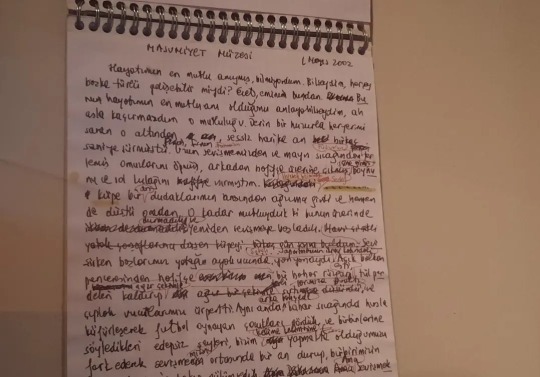
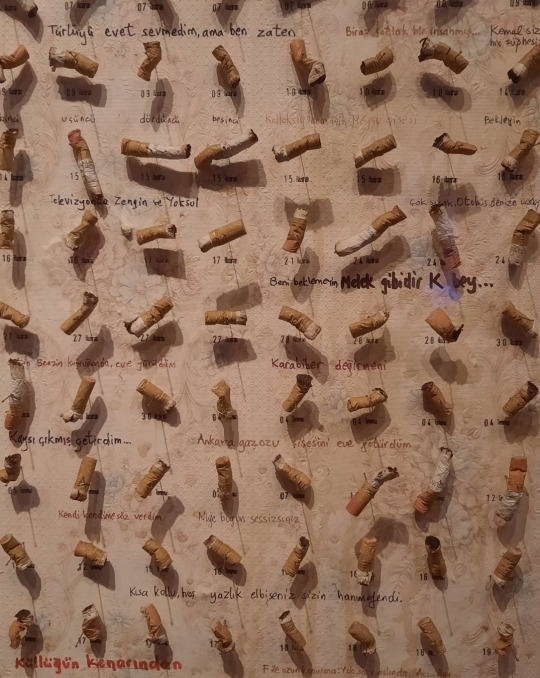

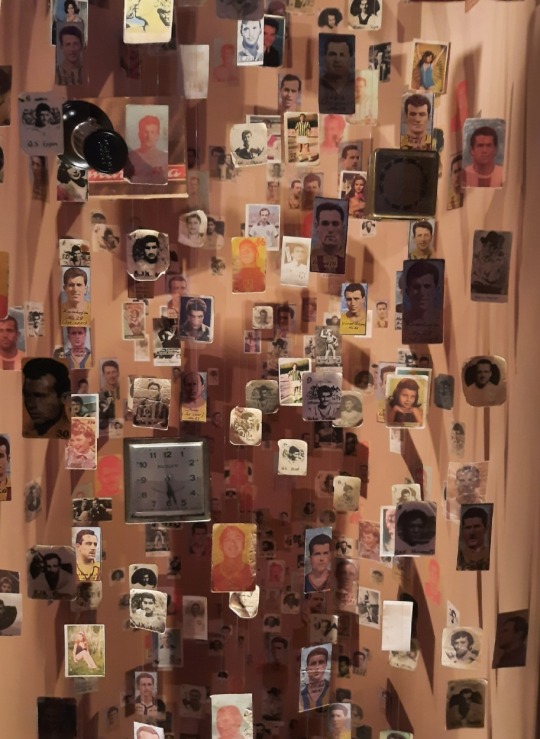

#turkish literature#literature#masumiyet#müzesi#masumiyet müzesi#orhan pamuk#Türk yazar#novel#roman#aşk#love novel#türk edebiyatı#museum
20 notes
·
View notes
Note
Nihal for the character ask?
Favorite thing about them: As a person, what I like best about her is the kindness and concern she shows to the sick Beşir, even if she doesn't really care as deeply as she should. On a meta level, I like the sheer complexity and emotional depth of her character, so unexpected for a 12-to-15-year-old girl in a turn-of-the-20th-century novel written by a man. In a more conventional book, she would just be a sweet, innocent foil to her adulterous stepmother Bihter, but she's most definitely not. On the one hand, she's spoiled, bitter, often irrational, manipulative, and much too possessive. But on the other hand, we can sympathize with her pain at being "abandoned" by her loved ones, especially because her father's remarriage comes at the same time as (and is partly motivated by) her transition from a child to a young woman in society, with the expectation of soon leaving her home to marry some stranger. Add to these her assorted other qualities, like her cleverness and her moments of genuine kindness, and she arguably has the richest characterization in the entire book.
Least favorite thing about them: Well, if she were a real person, I'd dislike her spiteful, vindictive tendencies, but that's part of what makes her interesting. As a character... I'm tempted to agree with @ariel-seagull-wings about disliking the idea that her rivalry with Bihter was inevitable, that stepmothers and stepdaughters are always rivals. But since (unless I'm forgetting something) it's only Mademoiselle de Courton who says this, I'll argue that we the readers don't need to take that view, per se.
Three things I have in common with them:
*I'm uncomfortable with change.
*I'm sometimes afraid of abandonment.
*I like Classical music.
Three things I don't have in common with them:
*I don't have a stepmother.
*I've always been strong and healthy.
*I don't play the piano.
Favorite line: "Father, when a child becomes a young girl she finally becomes a bride, doesn’t she? Do you know? I have made a decision, a decision that can’t be changed: Little Nihal won’t become a bride. You know you used to ask me when I was little: You used to say, Nihal, who will you marry. I, doubtless with a a serious conviction, used to say: You. Don’t panic, now I am not of that opinion, but I will stay by your side, do you understand, father? Always together with you…”
brOTP: Bülent (when she's not acting like he betrayed her just by innocently calling Bihter "mother") and Mademoiselle de Courton.
In crossover-land, I might also like her to meet either of the two Catherines from Wuthering Heights – she shares traits with both, combining an upbringing more like Catherine Linton's with the selfishness, pathology, need for adoration, and (eventual) emotion-aggravated sickliness of Catherine Earnshaw, and dealing with the hard transition from girlhood to womanhood too. I don't know if they could ever be friends or if they'd hate each other, though.
OTP: None; she's not psychologically ready for romance and might never be.
nOTP: Behlül, or her father.
Random headcanon: Her illness is some form of epilepsy (her fainting spells are actually seizures), and she's on the autism spectrum too. After all, about 10% to 12% of people with ASD are also epileptic, and it would explain a lot about her personality: black and white thinking, dislike of change, not wanting to leave the safety of childhood, etc.
Unpopular opinion: If it's unpopular to think of her as a unique, complex, morally gray character, and not just an ingénue foil to Bihter, then that's my unpopular opinion. Although I think anyone who thinks she's a stock ingénue must either only know a bad adaptation, not the book, or else lack basic reading comprehension!
Song I associate with them: None at the moment.
Favorite picture of them: These pictures from @faintingheroine of Itır Esen in the 1975 TV version.

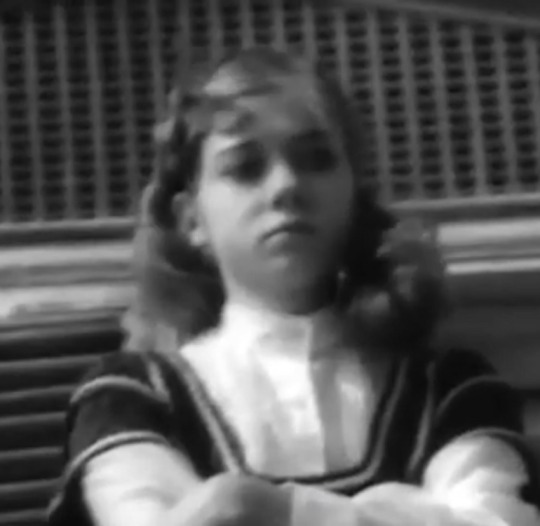
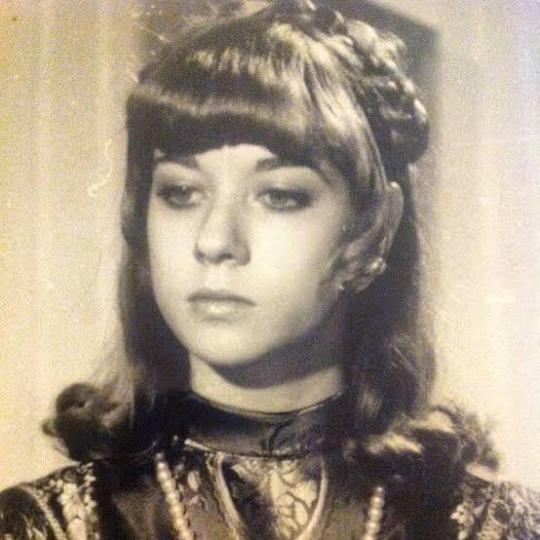
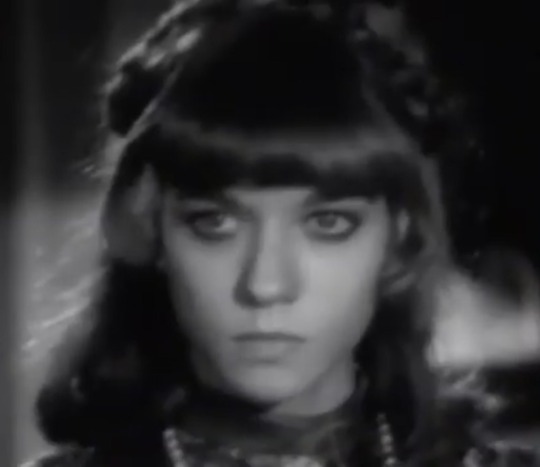
18 notes
·
View notes
Text

Nazim Hikmet, Sadness
#nazim hikmet#literature#turkish literature#dark academia aesthetic#dark academia quotes#poetry#quotes#dark academia#arabic love poems#arabic poetry#english lit#classical academia#classical literature#sadness is a white bird
144 notes
·
View notes
Text
Why is it that even in the way you beg, there is dominance, and pity in the way we refuse?— there is no other creature on this earth that races after such easy success, and no other creature as proud, arrogant and egotistical, yet at the same time cowardly and set in his ways. Once I became aware of all of this, it was impossible for me to truly love men. Even the ones I liked the most,— the moment would arrive when some minor provocation had them baring their wolfish teeth; after being together, and giving each other an equal amount of pleasure, they’d sidle up to me, sighing idiotically, and either apologize or offer to protect me, making it clear that in their eyes, they had vanquished me… But they were in fact the ones who had exposed just how pitiful and miserable they really were. There is no woman as pitiful and ridiculous as a man swept away by his passions. At the same time they take huge pride in them, seeing them as proof of their virility.— Although I know that there is in me no tendency towards the unnatural, I would rather fall in love with a woman.’—It’s just that I’m a artist, as you know… I have my own standards of beauty… I don’t think it would be beautiful to make love to a woman… How can I put it… the aesthetics would be all wrong.
Maria Pruder, from Madonna in a Fur Coat, 1943 by Sabahattin Ali
#sabahattin ali#madonna in a fur coat#turkish literature#men and women#dark acadamia aesthetic#translated literature
20 notes
·
View notes
Text
When Camus said "Pour que tous soit consommé, pour que je me sente moins seul, il me restait à souhaiter qu'il y ait beaucoup de spectateurs le jour de mon exécution et qu'ils m'accueillent avec des cris de haine" and Le Fanu said "There is no word as indifference in my apathetic nature" and Pamuk said "Uzun bir süre kimseyle konuşmadım; içime döndüm. Dünya ile arama uzaklık koydum. Dünya güzeldi, içim de güzel olsun istedim. İçimde bir suçluluk, hatta kötülük yokmuş gibi yaparsam, yavaş yavaş kötülüğü unuturdum."
Translations:
"For everything to be consummated, for me to feel less alone, I had only to wish that there be a large crowd of spectators the day of my execution and that they greet me with cries of hate."— Albert Camus
"For a long time, I would have nothing to do with anyone. I withdrew, distancing myself from the world. The world was beautiful, and I wanted my inner world to be beautiful, too. If I ignored the guilt, the darkness inside me, I thought I would eventually forget it was there."— Orhan Pamuk
#orhan pamuk#albert camus#sheridan le fanu#carmilla#l'etranger#kirmizi sacli kadin#the stranger#the red haired woman#quotes#book quotes#i felt that#i felt that so deeply#turkish literature#french literature#reading#long reads#books#book blog#bookworm#books & libraries#bookaddict#bookish#bookblr
19 notes
·
View notes
Text
The preface of Aşk-ı Memnu in the Italian translation:
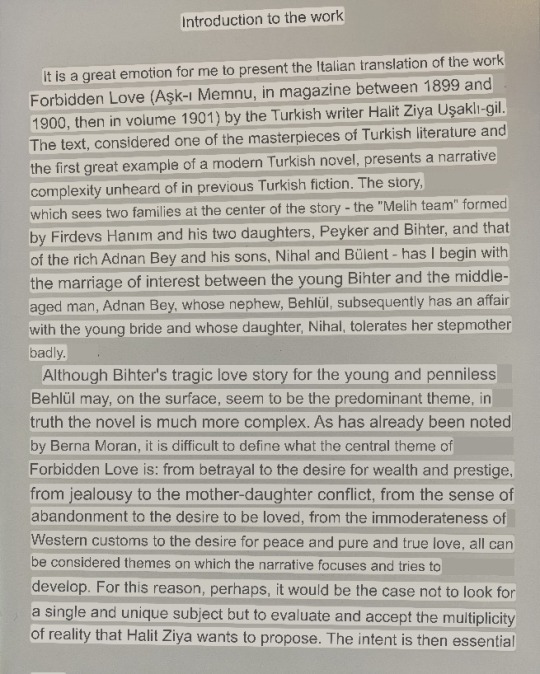

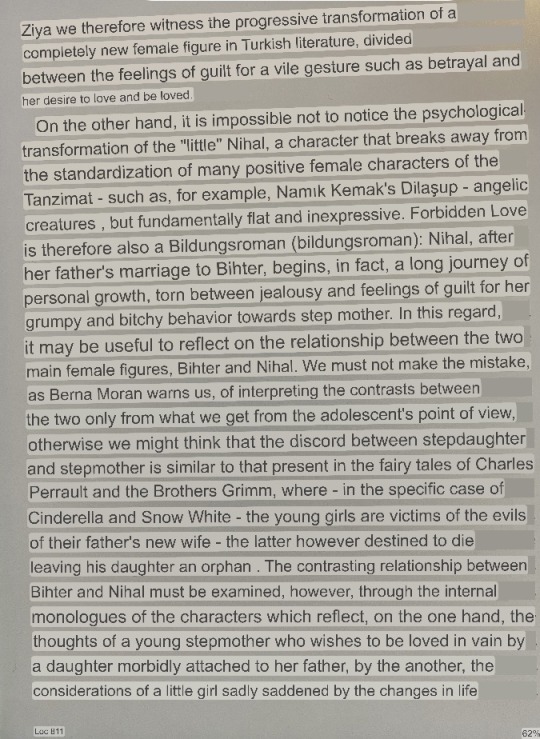
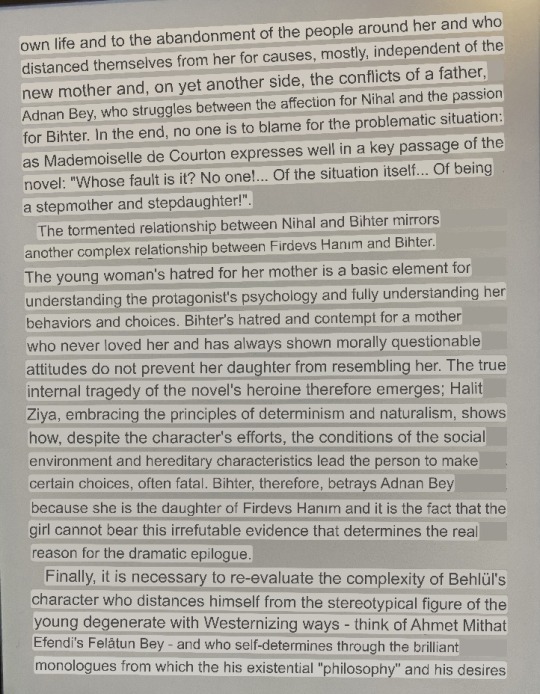



Might be the best introduction for this novel in any edition, or it is at least a contender.
@the-mad-woman-in-the-attic @mircallaruthven @artemideaddams @fabrizio-art @longagoitwastuesday
12 notes
·
View notes
Text

7 notes
·
View notes
Text
How could you say that I don't want you? Have I ever wanted anything from life other than you? What is it to life other than you, that I could possibly want?
Sabahattin Ali, The Devil Within
4 notes
·
View notes
Text

Gecikme (Too late) by Şükrü Erbaş
(english translation from poetryinternational.com)
4 notes
·
View notes
